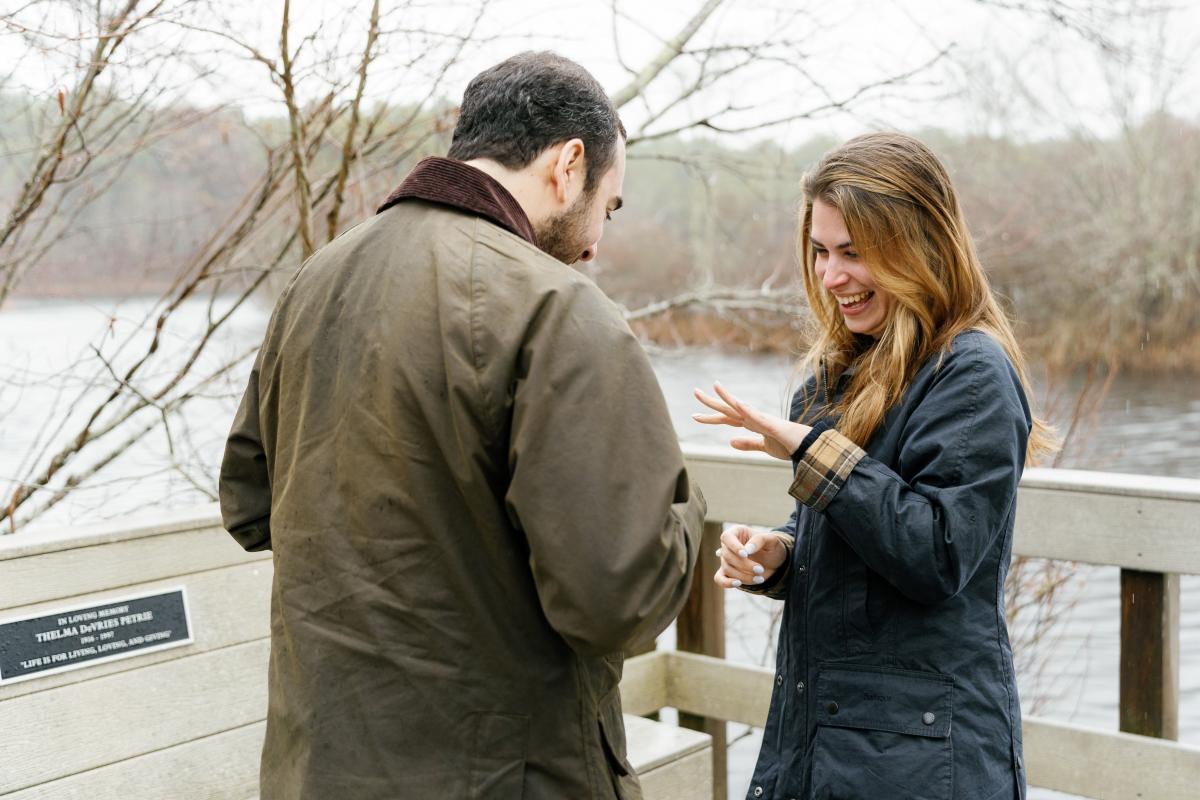 My daughter got engaged this weekend to her male doppelganger. There is no greater joy for a parent than to see your child choose an ideal life mate. Marriage is hard, and beginning the journey synchronously aligned is a great place to start.
My daughter got engaged this weekend to her male doppelganger. There is no greater joy for a parent than to see your child choose an ideal life mate. Marriage is hard, and beginning the journey synchronously aligned is a great place to start.
Both families are very pleased. Despite growing up in different cultures miles apart, they displayed similar childhood characteristics. Both were very early walkers, avid readers, little motormouths, and addicted to Harry Potter.
“In the spring a young man’s fancy lightly turns to thoughts of love. Spring is the season for love,” wrote Tennyson, in a poem entitled Locksley Hall.
Ah, spring. It makes sense that it is the season for love. The air is crisp and fragrant. The landscape is shaking off its winter doldrums. The grass shoots are a bright light green and sap is running up the evergreens. Vivid green shoots emerge on the dark twisted twigs on bushes. The trees cast a light green or red tint, hinting at the forest green leaves waiting to unfold. Daffodils and dandelions sparkle like sunshine, even on a cloudy day. Multi-colored tulips stand at attention. Red Bud trees are covered with pinkish-purplish branches. Flowering cherry and pear trees provide soft, puffy, pastel pink and white clouds against the sky. Hellebores display abundant white and pink flowers. Violets are springing up from dark soil. Perfumed scents, flowers, and bright skies…all spell love.
But not so fast. It turns out that spring ranks only third of the four seasons in engagements. In fact, December alone, scoring a whopping 19% of all engagements, almost eclipses the entire three month season of spring (23%). Only autumn has fewer engagements (19%). And since most mammals give birth in the spring, their mating actually occurs in autumn or winter.
So how did spring get attached to love? Maybe it is the freshness, the youth, or the promise of a bright future. Or maybe we think of Spring as a time for engagements because the summer wedding season follows. So, I guess that while a young man’s fancy may turn to love, he doesn’t act upon it until the winter (34% of engagements).
But love also signals wonder and good fortune. Most of us have stories about the myriad of events that had to occur at just the right time for us to find our love match.
Before COVID, my daughter accepted a five year position in London. COVID closed that opportunity, and she ended up staying in New York City. Her fiancé almost went to Duke Law School but switched to NYU. And they found each other on the right dating app at just the right time. In order for these two to meet and fall in love, many seemingly random events had to occur in a precise choreography.
But calling it random sounds too arbitrary, too scary. Often, we call it fate. Or we believe that there is an unseen force guiding us, helping us, or even a predestination. “It was meant to be.”
Our very existence is the epitome of randomness. One of the one hundred million sperm cells impregnated the egg to create us. This randomness can be wonderful, but it can also be tragic (e.g., a car accident).
Tragedy makes it hard for us to wrap our heads around the randomness of life. So, we attribute these events to the universe, or predestination, the stars, or to an almighty power. The concept that life is purely random is too difficult to fathom.
So, is life a series of random events? Or, are we guided by benevolent unseen forces in our lives? We each get to make that decision.
But whatever is true, it is nice to reflect on how simple twists of fate enabled my daughter and her fiancé to find each other. A series of random events swirling around that resulted in an event that brought joy to many, many people.
Angela Rieck, a Caroline County native, received her PhD in Mathematical Psychology from the University of Maryland and worked as a scientist at Bell Labs, and other high-tech companies in New Jersey before retiring as a corporate executive. Angela and her dogs divide their time between St Michaels and Key West Florida. Her daughter lives and works in New York City.




Write a Letter to the Editor on this Article
We encourage readers to offer their point of view on this article by submitting the following form. Editing is sometimes necessary and is done at the discretion of the editorial staff.